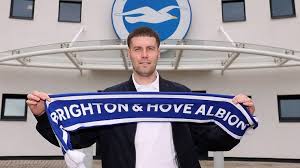The Role of Brighton Manager: Challenges and Changes

Introduction
In the fast-paced world of football, the role of the manager is pivotal to a team’s performance and overall morale. This has been particularly evident in the English Premier League, where Premier League teams face unprecedented pressures to succeed. As Brighton & Hove Albion navigates the complexities of the current season, the position of the Brighton manager has become a focal point for fans and analysts alike. With a shifting landscape of player dynamics and match performances, understanding the role of the Brighton manager is essential for grasping the club’s direction and ambitions.
Recent Developments
As of early October 2023, Brighton is grappling with a challenging start to the season, having secured crucial victories against formidable opponents. However, their inconsistent results have raised questions about strategy and sustainability. The club recently saw managerial changes, with Roberto De Zerbi stepping into the role following the departure of Graham Potter last season.
De Zerbi, known for his innovative tactical approach, aims to shift Brighton’s playing style towards a more possession-based game, retaining the key principles he established at Sassuolo and Shakhtar Donetsk. Despite his initial promising results, the team has faced setbacks, including a high-profile loss against a rival club, which triggered discussions about the effectiveness of his management style.
Challenges Facing the Brighton Manager
One of the significant challenges for the Brighton manager is managing player morale and injury concerns. Key players have faced injuries, disrupting team cohesion and performance. This has led to a reliance on younger squad members, testing De Zerbi’s management skills in integrating them into top-flight football.
Moreover, the club’s stature and expectations have grown significantly since their promotion to the Premier League, adding pressure to not only compete but succeed. The Brighton manager is tasked with navigating these expectations while maintaining a sustainable approach to both the short and long-term goals of the club.
Conclusion
The role of the Brighton manager is more crucial than ever as the club strives for success in a competitive atmosphere. The recent managerial changes and the accompanying challenges reveal the intricate balancing act that awaits De Zerbi as he seeks to lead Brighton to a prosperous season. Supporters and analysts alike will be monitoring how he adapts to these demands moving forward. The ongoing developments will likely have significant implications for the club’s performance, squad morale, and overall standing in the Premier League as the season progresses.









